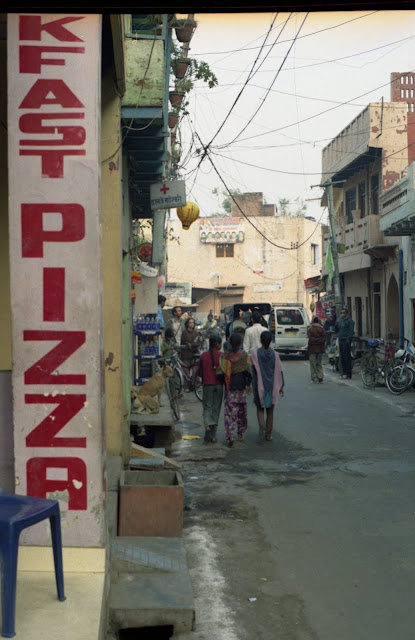The packs always feel double the weight when you're knackered and this morning the shoulder straps are digging down something viscious. With the main pack on my back and smaller day sack clipped on my front, I'm balanced in a fashion although completely helpless. Should any early bird mugger chance it, aside from a sumo style belly bounce, I am a sitting duck.
The city itself is not quite what we had expected, I had read it described as vibrant and modern, yet the view is row after row of drab concrete blocks set on a grid - a city built around the cars which tear past us on wide four lane boulevards. There is little character or charm for the eye to warm to and zero sense of history as you might expect.
Our initial plan last night as we caught the night bus from Kyoto was 'balls to sleeping on the bus, we'll grab some kip in the park tomorrow' (the sun was shining in Kyoto).
The park was a puddle so we made a run instead for the Hiroshima Memorial Centre, really our primary reason for visiting the city. If you are planning a trip to Japan, definitely book time out to visit this museum. It takes around half a day to see the full exhibition and the admission is cheaper than a can of coke, but 50p!
As a history lesson, the focus centres on Hiroshima's history as an army stronghold, it's selection as a target and the technology and development of the A bomb. There are some strange omissions, the attack on Pearl Harbour and Japan's role and purpose in WW2 are not covered at all.
More successful was the poignant retelling of events on that day in August 1945 and the reframing of the bombing as THE modern tragedy. One that shows the mindnumbing potential for total destruction, a nuclear war would inevitably bring about.
Winter is hard already, a nuclear winter is frankly the stuff of nightmares.
There were many mementoes of those who perished, some leaving behind just a lunch box still holding its incinerated contents to signify its owners passing.
The most harrowing for me were the wristwatches, stopped dead at the time of impact - 8.15am, recording in macabre fashion the moment old Hiroshima disappeared forever.
Leaving the museum, the concrete eyesores and car ridden streets are transformed into visceral reminders of a once beautiful city razed until the land and its people were nothing but radiation and char.
As the years go by, and slowly the Hibukusha (those who survived) die one by one, the bombing becomes a distant memory. The museum seeks to keep it firmly in the modern eye, forefront in the nuclear discussion.
Visit Hiroshima if only to remind yourself of the fragility of life, the power of choice and the chance, the hope for a better way ahead.

No comments:
Post a Comment